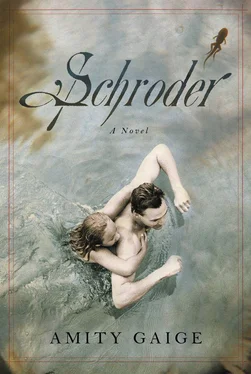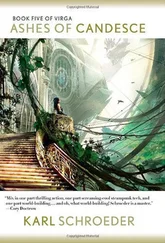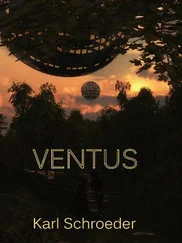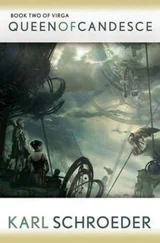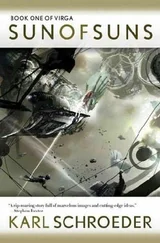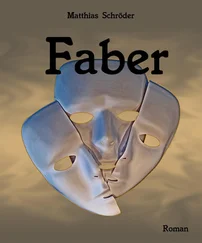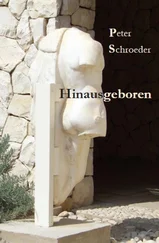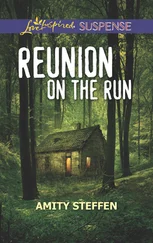We waited four years.
By the end of that time, I guess he couldn’t stand it. He’d begun to send off sheets of correspondence to prospective sponsors in the U.S. and Australia. It was 1979, and if you had said to any German on the street, Just you wait, that Wall will come down in ten years , he would have laughed in your face. The occasional scientist or prima ballerina on tour would defect, bringing the world news of the deprivations of material and human rights that existed behind the Iron Curtain. Plus, they needed electricians in Boston. So we left. I pulled on my windbreaker and the stiff imitation jeans we called “Texas pants,” stacked up my comics, and said good-bye to my cousins.
Among all the surprises that were in store for me — because I was living in the sort of childhood where nobody explained things to children — was the mind-blowing sensation of lift-off, leaving Tegel Airport with Dad via airplane, 1979. Until the plane tilted back, as if in prostration to the sun, I did not with my whole mind understand that we were going to actually ascend . As the forward thrust pressed me back against my seat, I nearly passed out from confusion and a sudden sense of betrayal. The yolk of my heart came loose. I could feel this yolk at my center become unmoored in my chest, too slippery to catch, too delicate to clutch. I said nothing to my father, who was staring out the portal window in silence. The plane seared the sky. We went up. “Lift,” said my father, for some reason. I said nothing, hoping he would not turn his head from the portal window and see my stricken face. Lift. And as he said this, one wing of the plane tilted precipitously earthward, causing my father and me to hang there over the suddenly exposed realm of a disappearing Germany. Below us, a civilization of cities, timberland, and autobahns, clearly of a piece, indiscriminate, utterly undivided. Then the vision was gone, hidden by clouds. My father did not speak. I could feel the ascending plane penetrating the clouds with minimal resistance, like the ripping free of webbing or a weak embrace. Up, up, up we went, until the plane seemed to relax and take a seat in the air, coasting within some great corridor of migratory birds across the North Sea, and I knew we would never, ever return.
For the first year or two of our new lives in Boston, I developed a renewed interest in my mother. Maybe the plan was that she’d meet us here . I used to study every woman her age on the streets of Savin Hill. I studied mothers with young children. I watched the mothers and I watched the children. I waited for understanding. I tried to jog my own fading memory. But study of these people yielded nothing. The women seemed busy and irritable. They rarely laughed or talked to anybody. They dragged their children so fast they looked like tippling monkeys. I watched them all, and I loved them all, and I wanted them all, until finally I hated them all and was relieved to side with my father. And I held my breath, and I hid deep down inside myself, and soon enough, I got out of Dorchester. I moved to Albany and returned to Boston exactly twice — once, soon after graduating from Mune to pack away my things so Dad could inhabit the bedroom, and again when I was twenty-six and my father needed cataract surgery. I still called him. I touched base. But Dad rarely called me and never demanded more from me. Namely, he never demanded an explanation about why I’d fled. It was almost as if he knew I was hiding something, and he sympathized.
And then I met a beautiful girl in Washington Park and a complete break was necessary. There was no other choice. Because there was no way I was going to jeopardize the thing I had going — a serious relationship with a serious American girl, one so smart she required graduate school to tame her mind, one who liked to bake her bare feet on the dashboard when we drove, one who gave me, several years later, a beautiful child with a perfect, four-chambered heart. And although I often thought of getting back in touch with my father, there was no clear way to do it. Even if I could sit with him in the old way, at the card table overlooking Savin Hill Road, then what? There would be an expectation that we see one another again, and another conspiracy would be conceived and aborted, followed by another long silence.
All this was very much on my mind when Meadow and I boarded the bus at Conway. The night before, I had promised her that we had one final stop to make before returning home. We were Boston bound. There, I told her, she would at long last meet someone very special to me. Someone I loved and, because of my own bad choices, had kept her from knowing. And if there was one last thing I wanted to do, it was to correct this error, if she would just bear with me a little longer. I wanted her to meet my father.
Maybe she believed me and saw herself back in the arms of her mother within a day or two. Or maybe she did not believe me at all, and it was merely that her patience had been stretched to the point of breaking, and she had simply snapped free of all survivalist anxieties. I don’t know, but we held hands . We held hands when we were picked up on the road near Mount Ragged by a handyman on his way to Conway. We held hands when we stood at the ticket window in an overcast New England town. And when the southbound bus pulled up that afternoon, we held hands as we climbed the rubber-coated steps into the cool tunnel of the bus. We carried nothing. We moved instinctively to the back, Meadow stroking the black velvet of the seatbacks as she walked. We settled in with a half dozen other wayfarers heading south, and soon the bus started forward. I think she sensed the difficulty ahead for me, personally. The difficulty of the things I had to say to her.
Before we’d even left Conway, I felt her eyes trained on me.
Ha, I thought, the kid’s got the mind of a trap.
“ Tell me,” she said. “You said you’d tell me things.”
“Did I?”
“You did. You did. Don’t tease, Daddy.”
“OK,” I said. “My Life Story. You ready?”
She nodded and did not look away.
“So I’ve been thinking of how to begin this story, and because it’s such a long story, I think it needs an invocation.” I raised my hands. “Tell me, O Muse, of that ingenious hero who traveled far and wide after he had sacked the famous town of Troy, New York!”
Meadow did not smile.
“Ha,” I said. “I’ll be here all night.”
“ Tell me .”
“All right. Listen. Jesus, Meadow. I’ve never been more nervous in my life.”
“Don’t be nervous, Daddy.” She took my hand. “You’re my dad.”
Tears bit my eyes. I can’t explain how it felt to prepare myself to utter words that I had never really spoken — not in English — names, places, truths that I had really never forced into sound. Would they even come out as words? If I spoke certain truths, wouldn’t time freeze, and nightmare soldiers board the bus and drag me away, back to the past for some ritual in which I would die, die or be sacrificed? I knew I was no match for my own lies. Why in the world, then, would I take my chances against them?
Because of a little girl.
I looked at my daughter.
“Go on,” she said.
“I have not, as you once noted, always told the truth.”
Meadow waited.
“I have told stories, in fact, that were elaborate — you could say — fictions, and although these fictions were not meant to defraud or to injure, I always knew — I knew in fact — that they would. Which is an admission that I — even now — can’t put straight to you, because I think it might be possible — it’s possible that if I made it explicit, if I took the blame, I would be singled out, struck down, and die.”
Читать дальше
